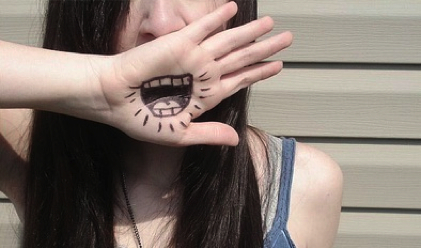Every few weeks, Dr. Vanessa Cullins, a board-certified obstetrician/gynecologist and vice president for medical affairs at Planned Parenthood® Federation of America, will be answering your questions here. To ask her your own question, click here.
Dear Dr. Vanessa,
Can you get genital HPV orally?
— Orally Fixated
Dear O.F.,
Yes, you can. There are more than 100 types of human papilloma virus (HPV). Some types produce warts — plantar warts on the feet and common hand warts are common examples. About 40 types of HPV can infect the genital area. They are known as genital HPVs. Some of them can also infect the throat.
Most sexually active people are bound to catch a genital HPV in their lifetime. So it is reassuring to know that most infections are not dangerous and resolve on their own. Some genital HPVs pose no risk. Some are low-risk and can cause warts, usually in the genital area, but also in the throat and on the lips, mouth, tongue, and palate. There are also a few high-risk types. They can cause cervical cancers as well as cancers of the anus, penis, scrotum, vagina, vulva, rectum, and throat.
You can get genital HPVs in the mouth or throat from deep kissing as well as from oral sex. Using condoms and Glyde Sheer dams during oral sex may offer some protection, but HPV spreads from skin-to-skin contact in areas that are not covered by barrier protection.
So, you may be wondering if there’s a better way to protect yourself from getting genital HPVs orally. Vaccines are the best line of defense. There are two: Gardasil and Cervarix. Both protect against the two types of HPV that are responsible for 70 percent of the cases of cervical cancer. Gardasil also protects against the two types of HPV that cause 90 percent of the cases of genital warts.
Vaccination is most beneficial before people become sexually active. But it can be helpful for women who are already sexually active. Health care providers recommend it for girls as young as nine and women as old as 26. It can be effective for women up to 46 years old. The FDA has also approved Gardasil vaccination for boys and men. It can protect them from genital warts, and it is very likely to keep them from spreading the high-risk types of HPV to others.
Oral sex is a very popular sexual activity. Warts in the throat are uncommon. And, fortunately, throat cancer caused by a virus passed through oral sex is uncommon, too. But they can happen. That’s why HPV vaccination is a good way to give peace of mind to people who enjoy oral sex.
Best wishes for your good sexual health,
Vanessa
Planned Parenthood
Vanessa Cullins, MD, MPH, MBA, is a board-certified obstetrician/gynecologist and vice president for medical affairs at Planned Parenthood® Federation of America.


















i want to get those vaccines, however, they have not tested them for the long term, they are still fairly new on the market. In a vaccine there is always the chance to get the viruses from the vaccine itself since it pretty much a half dead virus so the immune system can easily destroy it. I have yet to see research for the long term, what about 20 or 30 years down the road? Are all the girls now who are getting these vaccines going to get the virus later on?
why doesnt the vaccine work if you are over 46? that is weird? I have had both my pre sexual activity girls vaccinated, my ex finally agreed because his older daughter has warts. I THANK GOD have avoided it for this long and I never want them. What do I do at my age? I am 47.5?
If you have the warts, you still have the virus. LOL
My Doctor said I no longer have the virus unfortunately I still have the warts. Can I still infect someone?